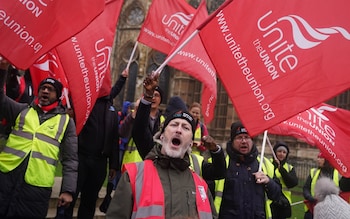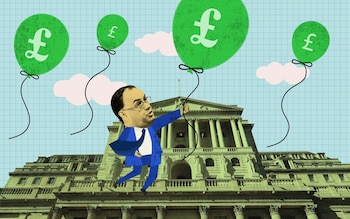Labour would make the benefits system more generous and cause a “ruinous” rise in unemployment, the Work and Pensions Secretary has warned.
Mel Stride said the party’s plan to reduce the use of sanctions on claimants who turn down jobs would cost taxpayers £2 billion over the next five years.
He made the remarks as he used a speech in London to tell companies that they would have to end their reliance on foreign workers and hire more Britons.
It was the third in a series of planned addresses by senior ministers, which No 10 will use to create pre-election dividing lines with Sir Keir Starmer.
Mr Stride said the Labour leader would “absolutely not” do a better job of getting the ballooning benefits bill under control if he wins power this year.
Speaking at a job centre in Kennington, in south London, he said: “The only thing they have said is they want to get rid of what they call punitive sanctions.
“We know that sanctions work and that if people don’t engage with the system and are still receiving benefits that it’s only right that sanctions should apply.
“Labour want to remove those – we calculate at a cost of about £2 billion – and I think that would have a ruinous effect on the level of employment.”
Mr Stride also attacked Labour’s plans to bolster workers’ rights and repeal Tory legislation designed to curb the effect of strikes.
He said proposals drawn up by Angela Rayner, the party’s deputy leader, would lead to an increase in employment tribunals and be “disastrous for businesses”.
Labour has said it would not completely stop the use of benefits sanctions but has pledged to end their “punitive” application under the Conservatives.
Jonathan Ashworth, a former shadow work and pensions secretary, said last year that the party wants to use incentives to encourage job seekers instead.
“Let’s take away that fear and distrust which prevent so many from engaging with employment support and attempting a move into work,” he said.
But he added “conditionality” would remain in the benefits system and “there will be rights and responsibilities running through the heart of social security”.
Mr Stride also used his speech to warn businesses that the Government was determined to cut net migration.
He said that Rishi Sunak would be sticking to changes to visa rules that were expected to reduce the number of workers arriving by around 300,000 a year.
Mr Stride insisted No 10 would not buckle if faced with demands from industry to reopen the borders to tackle staff shortages.
“We have set out a very clear plan aimed at reducing the level of net migration. The changes are making dramatic impacts on net migration,” he said.
“That is a trajectory that I think people in the country feel is right and it is one that we are absolutely going to adhere to.”
Mr Sunak’s plans to cut net migration, and impose restrictions on graduate student visas, have caused a rift within the Cabinet.
Lord Cameron, the Foreign Secretary, is leading a group of senior ministers who are warning the proposals would led to huge job losses at universities.
Jeremy Hunt, the Chancellor, Gillian Keegan, the Education Secretary, and James Cleverly, the Home Secretary, are also said to have raised concerns.
Alison McGovern, Labour’s shadow work and pensions secretary, said that the Tories could not fix their own “failings” on benefits and immigration.
“The Tories should be prioritising proper plans to tackle worker shortages and adopting Labour’s plan to connect the immigration system to skills,” she said.
“It is Labour who have the plan to get Britain working by cutting NHS waiting lists, reforming job centres, making work pay and supporting people into good jobs across every part of the country.”
Disclaimer: The copyright of this article belongs to the original author. Reposting this article is solely for the purpose of information dissemination and does not constitute any investment advice. If there is any infringement, please contact us immediately. We will make corrections or deletions as necessary. Thank you.



